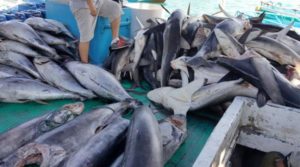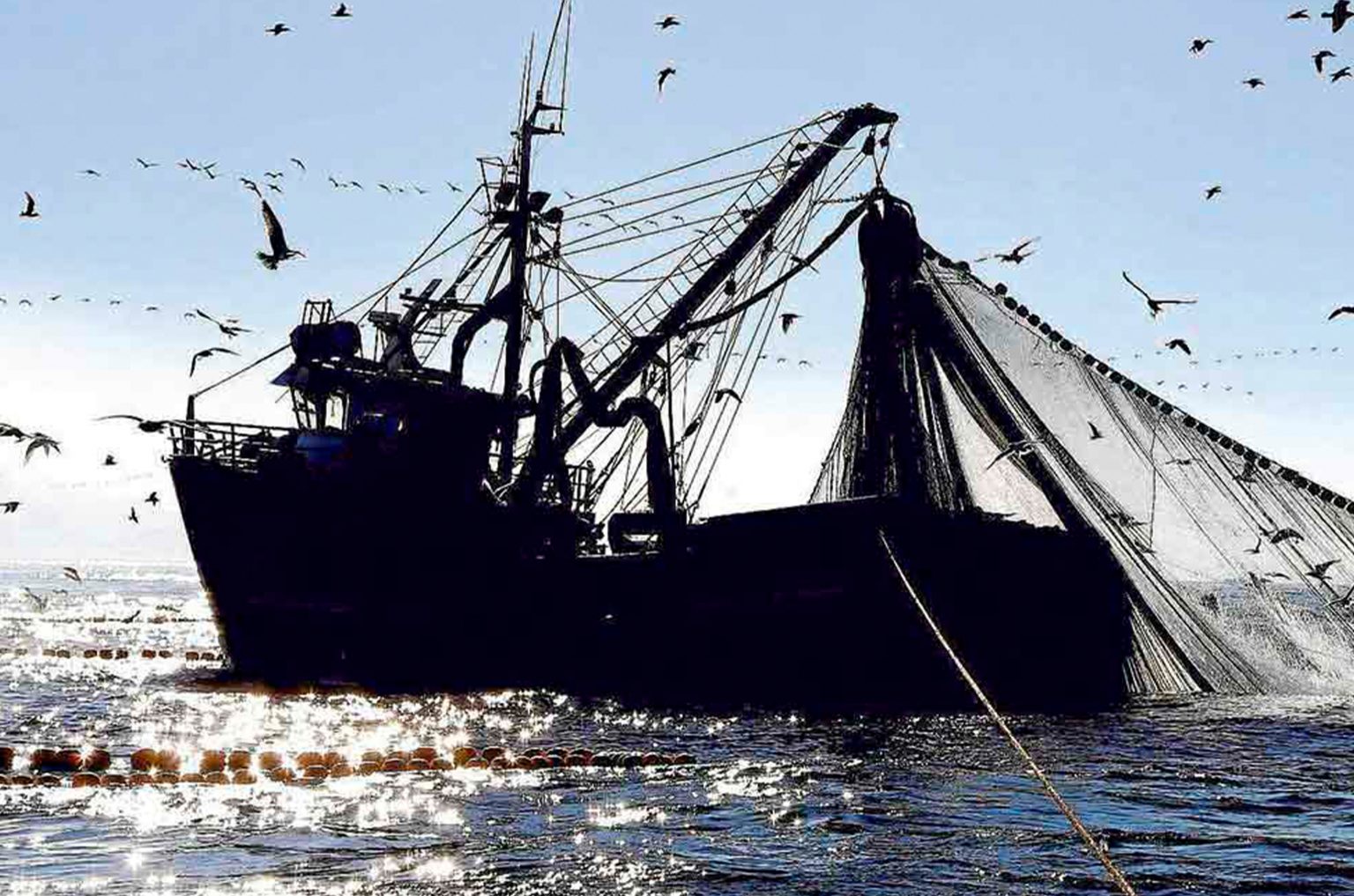A September 24, 2021 investigative feature published by the Associated Press (AP) and the Univisión network, whose team joined the research and patrol vessel Ocean Warrior of the Amsterdam-based environmental nongovernmental organization (NGO) Sea Shepherd Global, revealed that Chinese ships are increasing their presence in the Pacific waters off the coast of South America, with practices that raise alarms about illegal, unreported, and unregulated (IUU) fishing.
The journalists identified 30 Chinese-flagged fishing vessels, 24 of them accused of abusive labor practices or of violating maritime laws.
In addition, they discovered that 16 vessels were sailing with their transponders turned off or transmitting different electronic IDs that did not match the vessel’s name or location, as well as other anomalies associated with IUU fishing.

According to the investigation, six ships belong to companies accused of forced labor, including the Chang Tai 802, whose Indonesian crew said that they have been at sea for four years. Nine other vessels face illegal fishing charges in other parts of the world.
In the last decade, the number of Chinese-flagged vessels engaged in giant squid fishing in the South Pacific increased almost tenfold, from 54 active vessels in 2009 to 557 in 2020, the report said, and the scale of fishing increased from 70,000 to 358,000 tons.
The Chinese fleet can fish for years at a time, because it unloads its nets at sea into giant refrigerated tankers, capable of carrying more than 15,000 cubic meters of fish (equivalent to six Olympic swimming pools). Other tankers provide fuel that the Chinese government subsidizes, AP says.
AP and Univisión reported that 12 refrigerated vessels that operate in the Pacific received at least 196 deliveries from fishing vessels in July, according to satellite data analyzed by Global Fishing Watch, a U.S. NGO that promotes sustainable fishing.
United against IUU
Governments in the Americas fear that Chinese IUU fishing in the Pacific will kill endangered species and threaten even abundant species, the investigative report concluded. Argentina, Chile, and Ecuador are implementing measures to combat this scourge.
Argentina has modified its sanctions for illegal fishing. “We have incorporated new concepts: In addition to the fine and seizure of whatever may be in the vessel’s hold, [offenders] have to pay all the expenses that the State may have incurred for their capture,” Carlos D. Liberman, head of Argentina’s Federal Fisheries Council, told the Argentine news portal Pescare on October 5.
He said that they are in the process of adding two more patrol vessels to send a very clear message to the fleet stationed at mile 201. “If they enter our waters, we are going to hunt them down, and we are going to sanction them with fines, which are a lot more significant today than they were two years ago,” he added.
Chile, through the National Fisheries and Aquaculture Service, implemented an artificial intelligence system to identify and classify images of captured fish, aimed at combating illegal fishing. After three months, the system, developed by the University of Concepción and Swiss-based company SICPA, identified 99 percent of the marine resources caught, the website Innovación Chilena reported on September 13.
In June, Ecuador passed a law directing the Ministry of Defense to continuously monitor vessels in the exclusive economic zone and on the high seas, and also to maintain constant communication to obtain updated information on the position of foreign fishing vessels, the Ecuadorian newspaper El Universo reported.
In this context, the U.S. Coast Guard and Navy provide maritime security assistance and training to partners of coastal States worldwide, as part of regional maritime security partnerships against IUU fishing, the U.S.-based Council on Foreign Relations said on its website.
Closing ports
“Beijing is exporting its overfishing problem to South America,” Captain Peter Hammarstedt, director of Campaigns for Sea Shepherd, told AP and Univisión. “The more ports close their doors to IUU fishing, the healthier our oceans can be,” the Food and Agriculture Organization (FAO) of the United Nations said on its website. “Sustainable fishing starts with all of us.”









